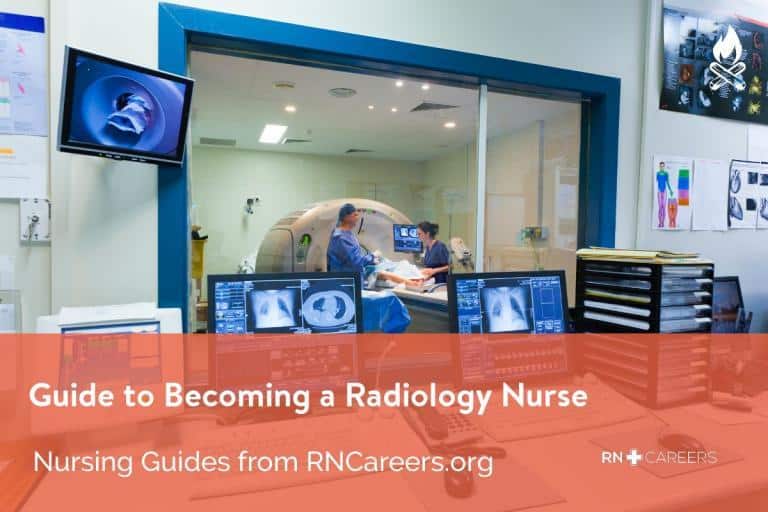Geriatric Nursing Overview
- What You Will Do: Provide professional nursing care for older patients, helping them maintain independence, mobility and quality of life
- Where Will You Work: Typically geriatric nurses are primarily employed in hospitals, assisted living facilities, and skilled nursing facilities/long-term care. Other venues include outpatient clinics, retirement centers, or home health agencies.
- Employment Projections: Nursing is expected to be the fastest-growing professions, with growth projected at 16% – 23%. Nurses specializing in geriatric care are in high demand.
- How Much Will I Earn: The average annual salary for geriatric nurses is $68, 534.
- Requirements to Become One: Become an RN, obtain licensure, obtain experience in geriatric nursing, obtain certification as a geriatric nurse.
Steps to Become a Geriatric Nurse
- Earn Your RN: You must earn an RN degree from an accredited Associate Degree in Nursing (ADN) or Bachelor Degree in Nursing (BSN) program. Many hospitals prefer a BSN degree. To further advance as a geriatric nurse, a master’s degree (MSN) is recommended.
- Pass the NCLEX-RN Exam: All RNs must pass the NCLEX-RN exam to obtain licensure to practice nursing.
- Specialize in geriatric nursing: On obtaining licensure, RNs seeking to specialize in geriatric nursing must first gain professional nursing clinical experience working with older patients.
- Obtain Gerontological Nursing Certification: You must have a minimum of 2 years professional nursing experience, with a minimum of 2000 hours of clinical experience in geriatric nursing within the past 3 years. You must also document 30 hours of specialty related continuing education within the last 3 years.

What is a Geriatric Nurse?
Geriatric nurses specialize in providing professional nursing care for older patients, typically age 50 and over. The primary focus for geriatric nursing is to promote independence, mobility, and quality of life for the elder patient. Geriatric nurses address psychosocial as well as age-related physiological issues, working with primary care providers, social workers, and families to develop an individualized plan of care for elderly clients. In addition geriatric nurses are important advocates promoting the safety and well-being of older adults, including issues such as elder abuse and neglect.
How Do I Become a Geriatric Nurse?
The first step toward becoming a geriatric nurse is to become a Registered Nurse, earning an associate (ADN) or bachelor of science degree (BSN) from an accredited nursing program. It is important to note that many employers prefer at least a BSN. After graduation, you must obtain RN licensure by taking the NCLEX-RN examination in your state. Once you have achieved licensure, you will need to obtain professional nursing clinical experience in geriatric nursing.
To be eligible to obtain Gerontologic Nursing Certification (RN-BC) certification offered by the American Nurses Credentialing Center (ANCC) you must:
- Hold current, active RN licensure
- Have a minimum of 2 years full-time professional nursing experience
- Have a minimum of 2,000 hours of clinical practice in geriatric nursing within the last 3 years.
- Have completed 30 hours of continuing education in geriatric nursing within the last 3 years.
Certification is valid for 5 years, after which it must be renewed by meeting the renewal requirements in place at the time of renewal, such as specialty-related professional development and practice activities. If this is not possible, the certification exam must be retaken.
At the graduate/advanced practice nurse level, the ANCC offers two certifications; Adult-Gerontology Acute Care Nurse Practitioner Certification and Adult-Gerontology Primary Care Nurse Practitioner Certification.
Eligibility requirements include:
- Current, active RN licensure
- Graduate of MSN or DNP Adult-Gerontological Acute Care or Primary Care Nurse Practitioner program
- A minimum of 500 faculty-supervised clinical hours in the related nurse practitioner role.
Certification is valid for 5 years, after which it must be renewed by meeting the renewal requirements in place at the time of renewal, such as specialty-related professional development and practice activities. If this is not possible, the certification exam must be retaken.
Where Do Geriatric Nurses Typically Work?
Geriatric nurses typically work in hospitals and long-term healthcare facilities. Their job is to care for patients who are often bedridden and require assistance with mobility, medications, attachments, feeding tubes, wound dressings and other daily living tasks. Nurses aid in the prevention of partial or total dependency that a patient may otherwise have had were it not for their care. They also provide emotional support and provide guidance on how family members can best help the patient during his/her time of need. Some geriatric nurses engage in advocacy programs where they speak about beliefs regarding aging-related illnesses as well as ways to avoid abuse.
Types of Geriatric Nurses
There are many different types of geriatric nurses. Registered nurses, licensed practical nurses, and geriatric nurse practitioners are all available to work with older adults and their needs. They’re typically found in hospitals or long-term care facilities, but geriatrics is a recognized medical specialty, so they can also be found in doctor’s offices or public health settings.
What Do Geriatric Nurses Do?
Geriatric nurses are responsible for promoting independence, mobility and quality of life in their patients as well working closely with families to develop individualized plans of care. They address psychosocial as well as age-related physiological issues, often working alongside primary care providers, social workers and other medical professionals. Geriatric nurses will typically assist the elderly patient with tasks such as medication management or basic personal hygiene needs as well as advocate for safety and well-being of the patient. They also often engage in advocacy programs where they speak about beliefs regarding aging-related illnesses as well as ways to avoid abuse.
How Much Do Geriatric Nurses Earn?
Nursing, in general, is identified as one of the fastest growing professions in the US in terms of salary, with a projected growth of 16% +, much higher than the national average. Specialty certification can increase earnings significantly; the median annual salary range for geriatric nurses is 62,070 to $79,232, with an average salary of $68,534. This is dependent on the job, and the geographical area. Salaries are generally higher in urban areas, however, the cost of living is typically higher, as well. In addition, bachelor’s prepared nurses tend to earn higher salaries than nurses with associate degrees. According to the Bureau of Labor Statistics the top five states for general nursing salaries are (range 96,470 – 81,380);
- California
- Hawaii
- Alaska
- Oregon
- Massachusetts
Geriatric Nurse Programs
At the undergraduate level, specialty-related education consists of continuing education activities, such as conferences or online CEU providers.
Becoming a geriatric nurse practitioner or clinical specialist requires earning a master’s degree in nursing (MSN). The typical program consists of offering a specialty adult-gerontology nursing, either in acute care or primary care. Some examples of universities offering a geriatric advanced practice nursing (APRN) specialty or post-Master’s certificate include:
- Duke University School of Nursing, Adult-Gerontology Nurse Practitioner – Primary Care. Durham, NC. https://nursing.duke.edu/academic-programs/msn-master-science-nursing/adult-gerontology-nurse-practitioner-primary-care
- University of South Carolina College of Nursing – Adult Gerontology Acute Care Nurse Practitioner. Columbia, SC. https://sc.edu/study/colleges_schools/nursing/academic_programs/graduate_programs/masters_programs/agacnp.php
- Old Dominion University School of Nursing – Adult-Gerontology Clinical Specialist/Educator. Norfolk, VA. https://online.odu.edu/programs/nursing-adult-gerontology-clinical-nurse-specialist-educator
- Vanderbilt University School of Nursing – Adult-Gerontology Primary Care Nurse Practitioner. Nashville, TN. https://nursing.vanderbilt.edu/msn/agpcnp/index.php
- Emory University Nell Hodgson Woodruff School of Nursing – Adult/Gerontology Acute Care Nurse Practitioner and Adult/Gerontology Primary Care Nurse Practitioner. Atlanta, GA. http://www.nursing.emory.edu/admission-and-aid/msn-programs/index.html

Find Nursing Schools
Join a Top-Ranked Nursing School for a Life-Changing Career!
Discover Related Geriatric Programs
What is a Typical Geriatric Nursing Curriculum?
Continuing education at the undergraduate level focuses on broad range of related topics, including;
- Demographic characteristics related to older adults
- Models of care for older adults
- Physiologic, cognitive and psychosocial changes of aging
- Current treatment and prevention
- Functional assessment of older adults
- Fall risk factors and assessment strategies
- Management of medications
- Risk factors and signs of elder abuse
- Principles related to end-of-life care
At the graduate level, nurses typically begin with pursuing an MSN as an Adult-Gerontolgical Acute Care or Primary Care Nurse Practitioner. Some programs do include a post-graduate certificate program beyond the MSN. These programs focus on aspects of Adult-Gerontological Nursing including:
- Acute and complex chronic disease management
- Optimal wellness, health promotion
- Advanced physiology and pathophysiology
- Mental health issues
- Research and evidence-based practice
- Healthcare quality and patient safety
- Advanced skin and wound management
- Palliative care
- Advanced pharmacology
The Role of the Geriatric Nurse in the Nursing Shortage
The Bureau of Labor Statistics cites that employment for nurses will increase at a rate of 16% by 2024. There is a national shortage of nurses in general related to the Baby Boomer population entering retirement, and the increased health needs of the growing aging population. It is projected that the South and West will be hardest hit by the nursing shortage. The 12 states expected to have the most acute shortages are; Florida, Georgia, Texas, Virginia, Alaska, Arizona, California, Hawaii, Idaho, Montana, Nevada and New Mexico.
Given the growing elder population, nurses specializing in geriatric care are will be in greater demand, with a higher than average growth rate than for nursing in general. Employment opportunities are expected to expand, making this specialty a very stable career path for professional nurses.
Geriatric Nurse Resources
- The American Nurses Credentialing Center – https://www.nursingworld.org/our-certifications/gerontological-nurse/
- National Gerontological Nursing Association – https://www.gapna.org/
- American Geriatric Society – https://www.americangeriatrics.org/
- The Hartford Institute for Geriatric Nursing – https://hign.org/
- American Society on Aging – https://www.asaging.org/
- American assisted Living Nurses Association – http://www.alnursing.org/
References
- All Nursing Schools .com – https://www.allnursingschools.com
- American Nurses Credentialing Center – https://www.nursingworld.org/our-certifications
- Nurse Journal – https://nursejournal.org
- Registered Nurse.com – https://www.registerednursern.com
- Salary.com – https://www1.salary.com
- US Department of Labor; Bureau of Labor Statistics – https://www.bls.gov/
- About the Author
- Latest Posts
Karen is a Registered Nurse, graduating with a BSN in nursing in 1972 from North Park College in Chicago, Illinois. Her graduate degree was earned at Emory University, Atlanta, Georgia, in 1985. While her major clinical area specialty has been maternal/infant, pediatrics nursing, and women’s health, she has also worked in med-surg and adult ICU environments. She have 22 years’ experience in a faculty role, the past 7 years in an online venue.







